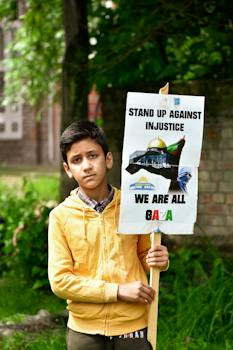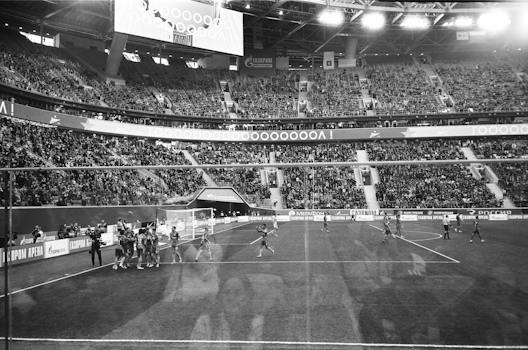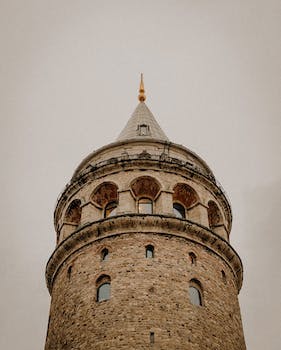

-
Table of Contents
"The Gaza Conflict: Shaking Western Hegemony."
Introduction
The Gaza Conflict refers to the ongoing conflict between Israel and Hamas, the Palestinian militant group that controls the Gaza Strip. This conflict has had significant implications not only for the region but also for Western hegemony.
The Historical Context of the Gaza Conflict: Examining Western Influence
The Gaza conflict has been a long-standing issue that has captured the attention of the international community. To fully understand the complexities of this conflict, it is essential to examine the historical context and the role of Western influence in the region.
The roots of the Gaza conflict can be traced back to the establishment of the state of Israel in 1948. The creation of Israel was a direct result of Western powers' support, particularly from the United States and the United Kingdom. This support was driven by a combination of factors, including guilt over the Holocaust and strategic interests in the Middle East.
The establishment of Israel, however, came at the expense of the Palestinian people. Hundreds of thousands of Palestinians were displaced from their homes and became refugees. This displacement created a deep sense of injustice and resentment among the Palestinian population, which has fueled the conflict in Gaza.
Western powers, particularly the United States, have played a significant role in perpetuating the conflict. The United States has consistently provided military and financial aid to Israel, enabling it to maintain its military superiority in the region. This support has often been criticized for its one-sidedness, as it has allowed Israel to continue its occupation of Palestinian territories and expand its settlements.
Furthermore, Western powers have used their influence in international organizations, such as the United Nations, to shield Israel from accountability for its actions. The United States, in particular, has repeatedly vetoed resolutions critical of Israel, preventing any meaningful action from being taken to address the root causes of the conflict.
The Western media has also played a role in shaping public opinion and perpetuating the status quo. The media often portrays the conflict as a battle between two equal sides, ignoring the vast power imbalance between Israel and the Palestinians. This skewed narrative has made it difficult for the international community to fully grasp the extent of the suffering endured by the Palestinian people.
The Gaza conflict is not just a localized issue; it is a reflection of broader power dynamics in the region. Western powers have long sought to maintain their hegemony in the Middle East, and their support for Israel is a key component of this strategy. By aligning themselves with Israel, Western powers have been able to exert influence and control over the region, ensuring the protection of their strategic interests.
However, this support for Israel has come at a cost. It has undermined Western powers' credibility and legitimacy in the eyes of the Arab and Muslim world. The perception of Western bias and double standards has fueled anti-Western sentiment and contributed to the rise of extremist ideologies.
In conclusion, the Gaza conflict cannot be understood without considering the historical context and the role of Western influence. The establishment of Israel and the subsequent displacement of Palestinians laid the foundation for the conflict. Western powers, particularly the United States, have played a significant role in perpetuating the conflict through their military and financial support for Israel. The Western media has also contributed to the perpetuation of the conflict by presenting a skewed narrative. Ultimately, the Gaza conflict is a blow to Western hegemony, as it exposes the contradictions and double standards of Western powers in the region.
Analyzing the Role of Media in Shaping Western Perceptions of the Gaza Conflict

The Gaza conflict has been a long-standing issue that has captured the attention of the world. It is a complex situation with deep-rooted historical, political, and religious factors. However, one aspect that often goes unnoticed is the role of media in shaping Western perceptions of the conflict.
Media plays a crucial role in shaping public opinion and influencing the way people perceive events. In the case of the Gaza conflict, the media has played a significant role in shaping Western perceptions. The way the conflict is portrayed in Western media has a profound impact on how people understand and interpret the situation.
One of the key ways in which media shapes Western perceptions of the Gaza conflict is through the selection and framing of news stories. Media outlets have the power to decide which stories to cover and how to present them. This can lead to a biased representation of the conflict, as certain aspects may be emphasized while others are ignored.
For example, Western media often focuses on the violence and destruction caused by Hamas rockets fired into Israel, while downplaying or ignoring the underlying causes of the conflict, such as the Israeli occupation and blockade of Gaza. This selective framing can create a distorted view of the conflict, leading to a perception that Israel is merely defending itself against unprovoked attacks.
Another way in which media shapes Western perceptions is through the use of language and imagery. The words and images used in news reports can evoke certain emotions and associations, influencing how people understand and interpret the conflict. For instance, the use of terms like "terrorist" to describe Palestinian militants can create a perception that Israel is fighting against an inherently violent and irrational enemy.
Furthermore, the media often portrays Israel as a democratic and civilized nation, while depicting Palestinians as backward and uncivilized. This portrayal reinforces Western stereotypes and biases, further shaping perceptions of the conflict.
The influence of media on Western perceptions of the Gaza conflict is not limited to news reporting. Entertainment media, such as movies and television shows, also play a role in shaping perceptions. For example, Hollywood often portrays Israel as a heroic and righteous nation, while Palestinians are depicted as terrorists or victims. This portrayal reinforces the dominant narrative and further solidifies Western perceptions.
The impact of media on Western perceptions of the Gaza conflict is significant. It shapes public opinion, influences policy decisions, and affects the way people engage with the issue. However, it is important to recognize that media is not the sole determinant of perceptions. People have agency and the ability to critically analyze and question the information they receive.
In conclusion, the role of media in shaping Western perceptions of the Gaza conflict cannot be underestimated. The selection and framing of news stories, the use of language and imagery, and the portrayal of Israel and Palestinians all contribute to a biased representation of the conflict. It is crucial for individuals to critically engage with the media and seek alternative sources of information to gain a more nuanced understanding of the situation. Only then can we challenge the dominant narrative and work towards a more balanced and just resolution of the Gaza conflict.
The Impact of the Gaza Conflict on Western Power Dynamics in the Middle East
The Gaza Conflict: A Blow to Western Hegemony
The ongoing conflict in Gaza has had a profound impact on the power dynamics in the Middle East, particularly in relation to Western hegemony. Western powers have long exerted their influence in the region, but the Gaza Conflict has exposed the limitations of their control and highlighted the growing resistance to their dominance.
One of the key ways in which the Gaza Conflict has challenged Western hegemony is through the rise of non-Western actors in the region. Countries like Iran and Turkey have emerged as key players in the conflict, providing support to Hamas and other Palestinian factions. This has allowed them to gain influence and challenge the traditional Western narrative that has dominated the region for decades.
Furthermore, the Gaza Conflict has also exposed the limitations of Western military power. Despite their superior military capabilities, Western powers have been unable to bring about a decisive victory in the conflict. This has undermined their credibility and raised questions about their ability to maintain control in the region. It has also emboldened non-Western actors who see an opportunity to challenge Western dominance.
In addition to the rise of non-Western actors, the Gaza Conflict has also highlighted the growing resistance to Western influence among the local population. The Palestinian people have long been subjected to Israeli occupation and have experienced firsthand the consequences of Western support for Israel. This has fueled a sense of anger and frustration, leading to increased support for resistance movements like Hamas.
The Gaza Conflict has also exposed the double standards of Western powers when it comes to human rights and international law. While Western countries often claim to champion these values, their support for Israel's actions in Gaza has called into question their commitment to these principles. This has further eroded their credibility and weakened their ability to maintain control in the region.
Moreover, the Gaza Conflict has also had economic implications for Western powers. The destruction caused by the conflict has led to a humanitarian crisis in Gaza, with widespread poverty and unemployment. This has created a fertile ground for radicalization and extremism, which poses a threat to Western interests in the region. It has also strained Western economies, as they are often called upon to provide aid and support to the affected population.
In conclusion, the Gaza Conflict has dealt a blow to Western hegemony in the Middle East. It has exposed the limitations of Western military power, highlighted the rise of non-Western actors, and fueled resistance to Western influence among the local population. Moreover, it has called into question the double standards of Western powers and had economic implications for them. As the conflict continues, it is clear that Western powers will need to reassess their approach and find new ways to maintain their influence in the region. Otherwise, they risk further erosion of their power and a shift in the balance of power in the Middle East.
Q&A
1. What is the Gaza Conflict?
The Gaza Conflict refers to the ongoing political and military conflict between Israel and various Palestinian factions, primarily Hamas, over control and governance of the Gaza Strip.
2. How has the Gaza Conflict impacted Western hegemony?
The Gaza Conflict has challenged Western hegemony by highlighting the limitations of Western powers in resolving the Israeli-Palestinian conflict and their inability to effectively mediate a lasting peace agreement.
3. What are some key consequences of the Gaza Conflict?
The Gaza Conflict has resulted in significant human suffering, loss of life, and displacement of Palestinians. It has also strained international relations, deepened regional tensions, and fueled anti-Western sentiment in some parts of the world.
Conclusion
The Gaza Conflict has had significant implications for Western hegemony. It has challenged the dominant narrative and exposed the limitations of Western power in the Middle East. The conflict has highlighted the growing influence of non-Western actors, such as Iran and Turkey, in the region. Additionally, it has raised questions about the effectiveness of Western-led peace initiatives and the ability of Western powers to mediate conflicts in the Middle East. Overall, the Gaza Conflict has dealt a blow to Western hegemony by undermining its perceived authority and revealing the shifting dynamics of power in the region.












